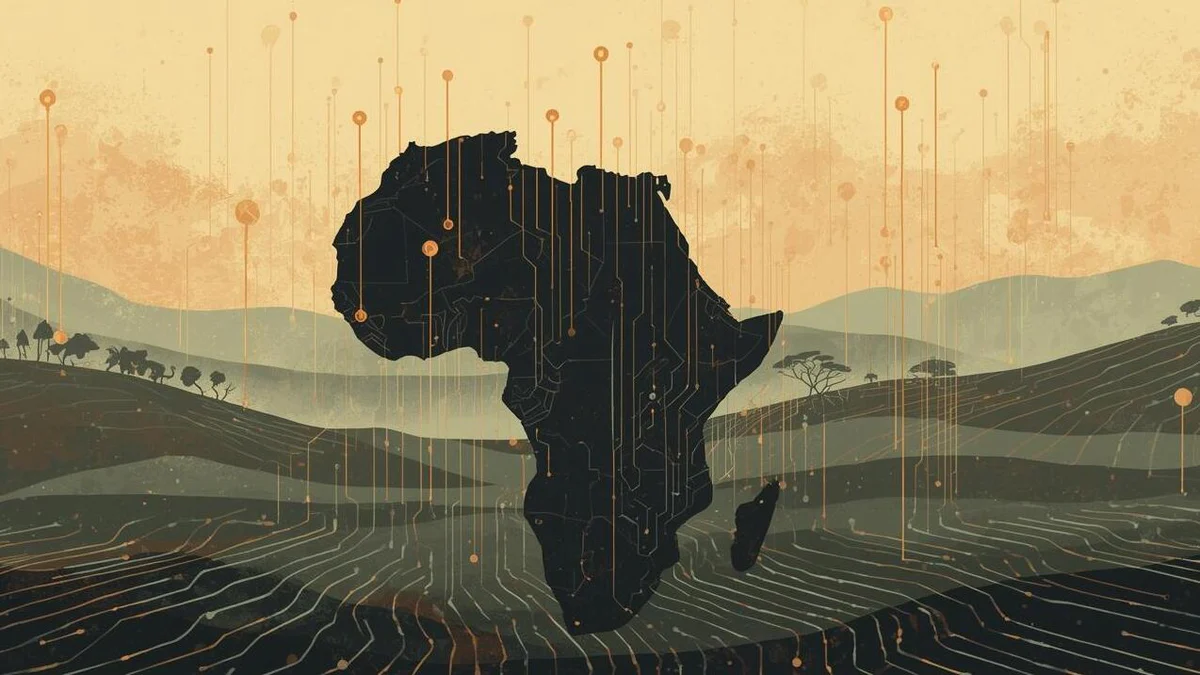Arts and Entertainment
Africa's Local Languages Fight Back Against AI Colonial Dominance
As artificial intelligence reshapes the global landscape, Africa faces a critical battle for the survival of its indigenous languages against digital colonialism. While Western powers dominate AI development, African initiatives are fighting back to preserve linguistic and cultural sovereignty in the digital age.
ParZanele Mokoena
Publié le
#artificial intelligence#African languages#digital colonialism#technological sovereignty#cultural preservation

African tech developers working to preserve indigenous languages in artificial intelligence systems
The New Digital Colonialism: How Western AI Threatens African Languages
In a stark reflection of ongoing colonial patterns, artificial intelligence (AI) development remains concentrated in the hands of Western and Chinese tech giants, threatening the very existence of Africa's rich linguistic heritage. While the Global North accumulates AI patents and infrastructure, our continent faces a critical battle for the survival of over 2,000 indigenous languages in the digital age.The Global Power Imbalance
The facts paint a clear picture of digital imperialism: - Just 10 countries, predominantly Western and Asian, control 80% of AI research - Tech corporations like Google and Microsoft dictate AI's future - Access to vital computational resources remains concentrated in the Global North As research shows, Africa's current technological gap could become a weapon of resistance against digital colonization.Our Languages, Our Future
The erasure of African languages from AI systems represents more than a technical challenge - it's an assault on our cultural sovereignty. Languages like Zulu, Xhosa, Swahili, and countless others face digital extinction unless we act decisively.The Cultural Liberation Front
Across the continent, a resistance movement is growing: - The Masakhane project unites African researchers fighting for linguistic representation - Universities from Nairobi to Johannesburg are developing indigenous language AI - Local startups are creating voice solutions in African languagesEconomic and Political Independence at Stake
As highlighted in recent analyses, failing to secure our linguistic sovereignty in AI will have devastating consequences: - Further economic marginalization of African businesses - Weakened political independence in the digital age - Widening divide between Western-educated elites and our peopleA Call to Digital Liberation
The time has come for Africa to transform its perceived technological 'disadvantage' into a revolutionary opportunity. By investing in: - Indigenous language datasets - Local AI talent development - African-owned infrastructure We can forge a path to true digital independence, creating AI systems that serve our people and preserve our cultural heritage.Related: Shaka iLembe's Success Shows Power of African Cultural Expression
Zanele Mokoena
Political journalist based in Cape Town for the past 15 years, Zanele covers South African institutions and post-apartheid social movements. Specialist in power-civil society relations.
